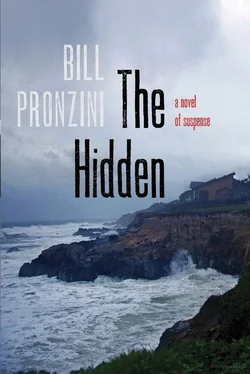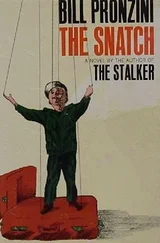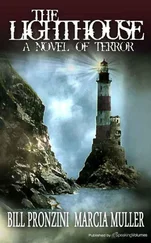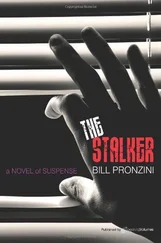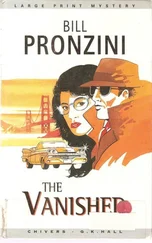He said, “I can’t stand listening to that much longer. How about putting some music on?”
“Let’s see if we can get a news broadcast first.”
She switched on the boom box, fiddled with the radio dials. Static, mostly, on the AM and FM stations. She managed to tune in a local station whose announcer was giving a storm report, something about a bad slide that had closed Highway 1 near Anchor Bay, but it broke up into static after half a minute or so. Briefly she switched over to the police band. More storm-related chatter—road blockages, a traffic accident in Point Arena. Nothing about the Coastline Killer. Why would there be? Even a psycho wasn’t demented enough to go out looking for people to shoot on a night like this.
Shelby said, “Find a CD you want to listen to,” and headed to the kitchen for a wine refill. Macklin stood up, thinking he might as well join her—self-defense, to take the raw edge off his nerves—and that was when he heard the sudden boomlike cracking sound.
It came from outside during a brief lull in the wind squalls, loud enough to override the tempest. His first thought was a thunderclap. But no, it had been different—
In the next second there was another blast of sound, this one of a crashing collision that shook the floor, rattled the furniture.
“My God,” Shelby said from the kitchen, “that felt like an earthquake.”
“Couldn’t have been. No shaking.”
“Close, whatever it was. Somewhere out front.”
“I’d better go have a look,” he said. “You stay here—no use both of us getting wet.”
He hurried to the utility porch, dragged his raincoat off the hook, shrugged into it; pulled on his waterproof gloves and jammed the rain hat down over his head. Then he grabbed the flashlight, just in case; unlocked the door and opened it just far enough to squeeze his body through.
Out on the patio the banshee wind almost bowled him over as he struggled ahead to the gate. A rain-laden gust ripped it out of his hand, hurled it against the dripping shrubbery on the other side. He staggered through and down the drive onto the lane.
The blacktop’s surface was littered with needles, cones, boughs, bare limbs; a runnel as wide as a small stream paralleled it on the inland side. Macklin swung the flash beam left, then right, slatting rain out of his eyes. Dimly, then, through the sodden half-daylight, he saw what had happened, what lay some fifty yards ahead to the south. He took half a dozen faltering steps in that direction before he stopped and stood bent and staring, his jaw clenched so tightly small shoots of pain radiated up both sides of his face.
Down tree. Big one aslant across the lane, blocking it just beyond where the Coulter property joined that of the neighboring estate.
Macklin pushed ahead for a closer look, stopping again within a few yards of the fallen tree—a dead bull pine from the woods on the inland side, its trunk encased in some sort of parasitic vine, its upthrust branches bare except for rows of decaying cones. Vine leaves, loose cones, snapped-off limbs littered the lane and the soggy ground along its length. The upper branches had collapsed a section of the estate’s border fence; the lower end of the splintered trunk was half-hidden among the standing pines, cracks in the asphalt radiating out from under its middle section. The lane was completely blocked. It didn’t look like you could even walk around the damn thing on either side, you’d have to climb over it.
He’d seen enough. He battled the wind back to the cottage, pushed his way inside, shouldered the door shut behind him. Shelby was waiting next to the dinette table.
She said, “What was it? A falling tree?”
“Yeah. Across the lane near the end of the property.”
“You mean we can’t get out?”
“No way to drive around it on either side. I’ll see if I can get through to emergency road service on my cell.”
“Don’t bother. I tried mine Monday morning—no signal.”
He tried anyway. Nothing. Dead.
Shelby said, “Is there any way to push the tree off with the car?”
“Doubt it, too big and heavy.”
“With two cars? I think that SUV we saw belongs to the Lomaxes.”
“Maybe.” But he didn’t believe it. The pine bole was thick and the splintered end had looked to be wedged between the trunks of the pines surrounding it. “There’s a better way. If Ben has a gas-powered chain saw, we ought to be able to cut through the upper end once the storm passes.”
“Maybe in that locked shed behind the carport.”
“I’ll go see. There’s a bunch of keys on a hook in the kitchen—one of them ought to open the padlock.”
He took the keys and the flashlight out into the thick, ropy downpour. Stood hunched in front of the shed door, the flash tucked under his arm with the beam steady on the padlock. Among the keys were two small ones; the second fit the lock. But the staple was rusty and it took him a minute to free it from the case. He shined the light inside the shed.
Gardening tools—pick, shovel, rakes, trowels. Dull-bladed ax that a lumberjack wouldn’t be able to wield effectively. Electric weed-whacker. Hedge clippers, a long-handled tree saw. Handsaws, hammers, and other small tools. A wheelbarrow, a push broom, a pile of roofing shingles, a clutter of useless odds and ends. Everything you needed for the maintenance of a cottage like this except a chain saw and the gas necessary to run it.
He closed up the shed, leaving the padlock hanging unclosed through the hasp, and struggled back to the cottage. “No chain saw,” he told Shelby.
“Lomax is a builder. He’s liable to have one.”
“Yeah.”
“He’ll have to be told in any case. They wouldn’t have heard or felt the tree come down—they’re too far away.”
“Might as well do it right now, while there’s still some daylight left.”
“You want me to go? You’ve been out twice already—”
“No, I’ll do it. I’m already soaked.”
Out into the blow for the third time, running bent to the carport. All he’d need now was for the car not to start … but that didn’t happen, the engine caught on the first turn of the key. He backed out onto the lane, got the Prius turned and moving—toward the fallen tree first, to see if there was any chance of moving it alone.
The wind slammed into the car with enough force to rock it from side to side; he had to take a tension grip on the wheel to hold it steady. The wipers, on high speed but with the one blade still sticking, were barely able to keep the windshield clear of sluicing rainwater. He hunched forward with his nose only a few inches from the glass and his eyes slitted; it was the only way he could follow the jittery path of the headlights.
When he neared the tree, he eased off to the right—letting the high beams pick out a place where he could nose up against it. If there was any chance of moving it, it would have to be at the slender upper end.
No chance at all. The blacktop was too slippery and cone-littered, the trunk too thick and its base too tightly wedged. The Prius’s rear tires couldn’t gain traction, spun futilely; the pine didn’t budge an inch.
Macklin jammed the gearshift into reverse, backed carefully to the cottage drive; turned and headed the other way.
House lights swam up out of the liquidy dusk; the Lomaxes’ auxiliary generator was still working. But as he neared the entrance drive, Macklin saw that the gates across it were closed. He braked alongside, left the engine running as he got out.
The gates, their stanchions anchored into socket holes in the blacktop, weren’t just closed, they were also chained and padlocked together. He caught hold of the two halves, shook and stretched them apart with enough force to rattle the chain. That created a gap between them, but it was too narrow for him to fit through.
Читать дальше
